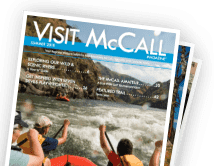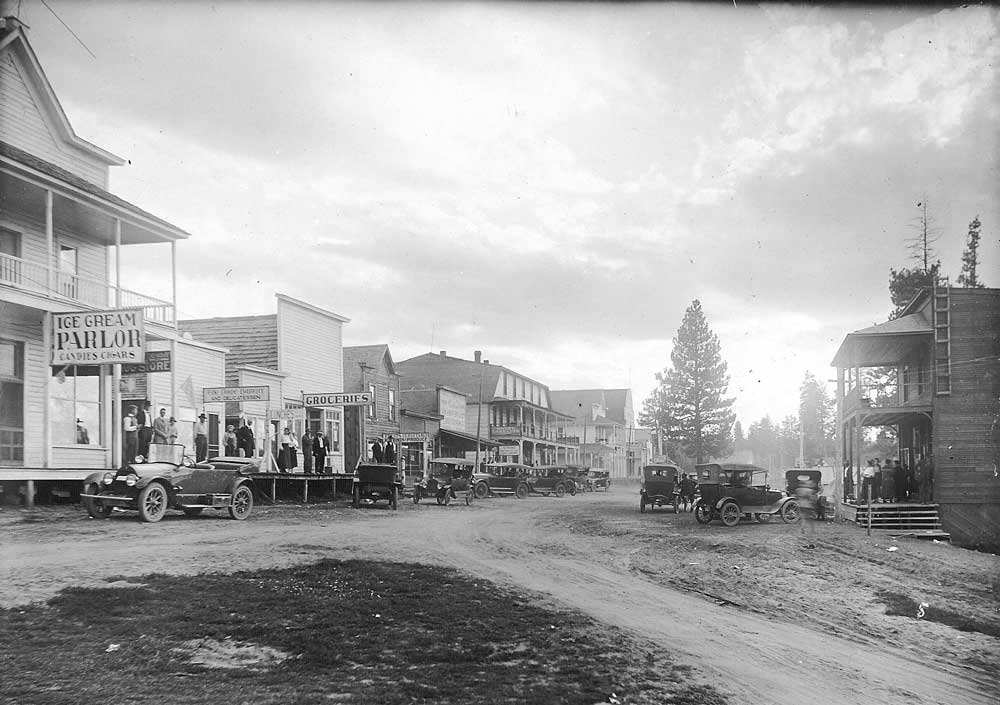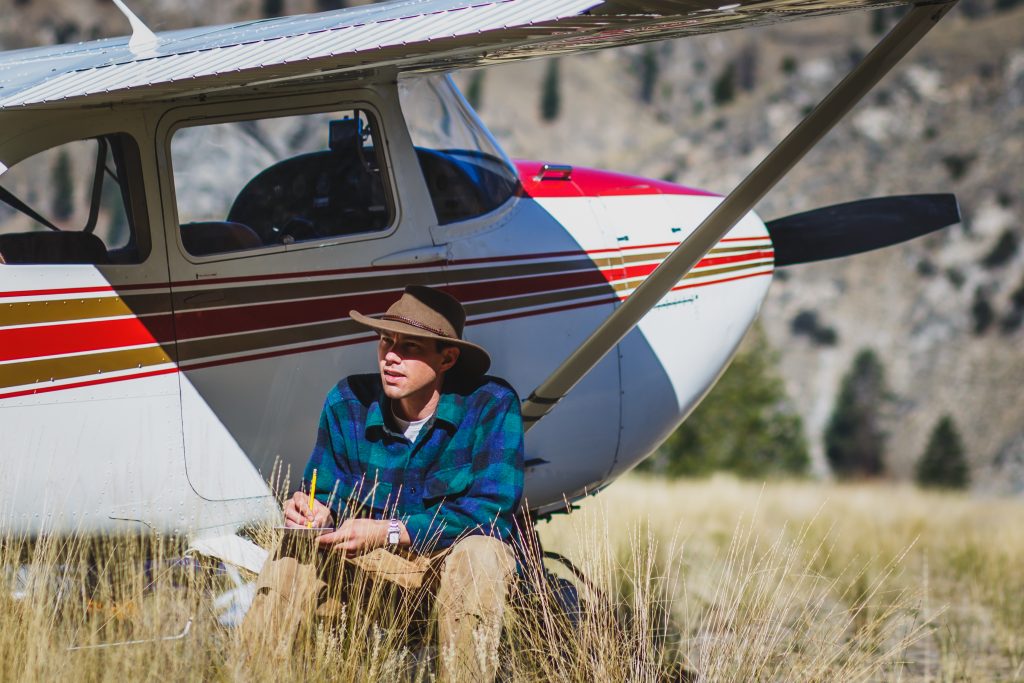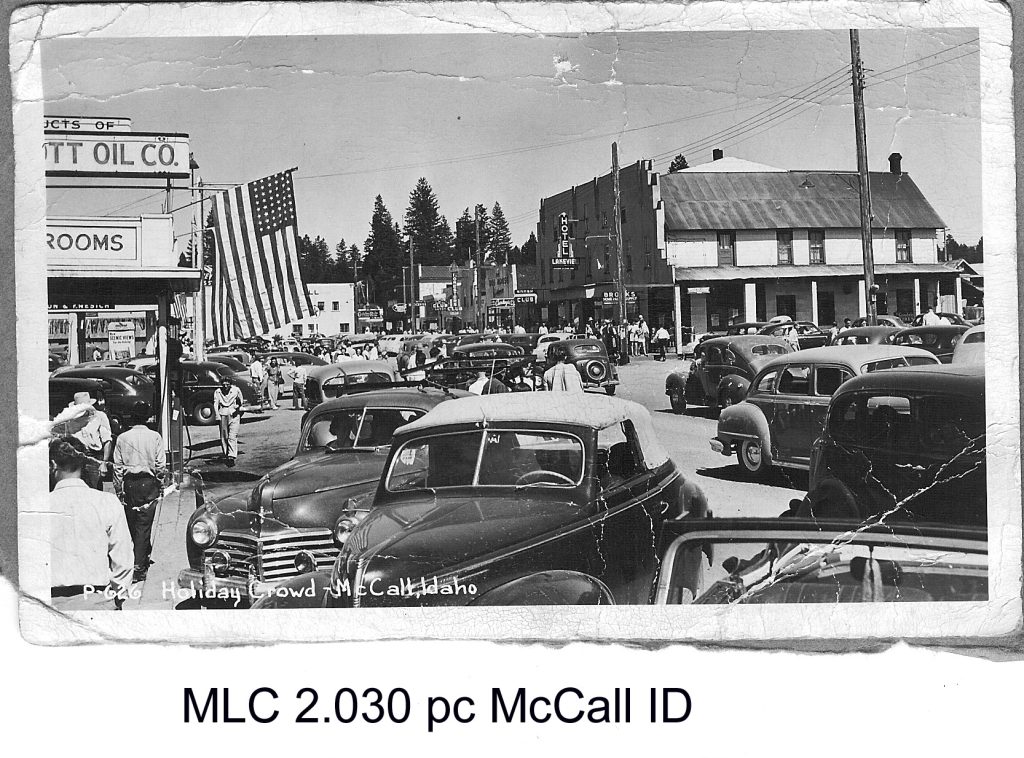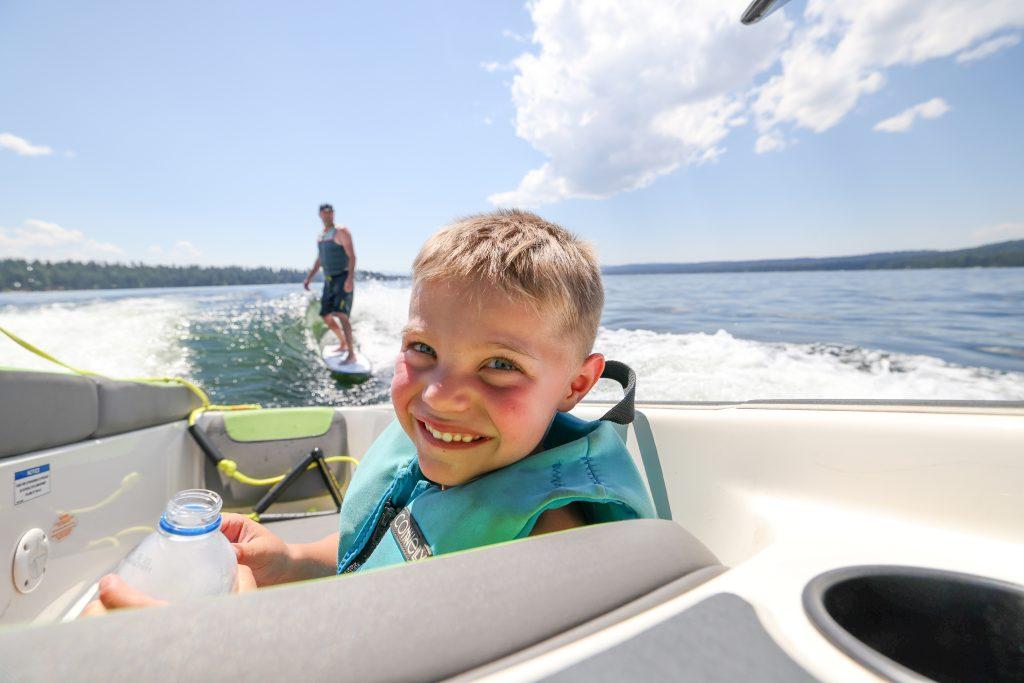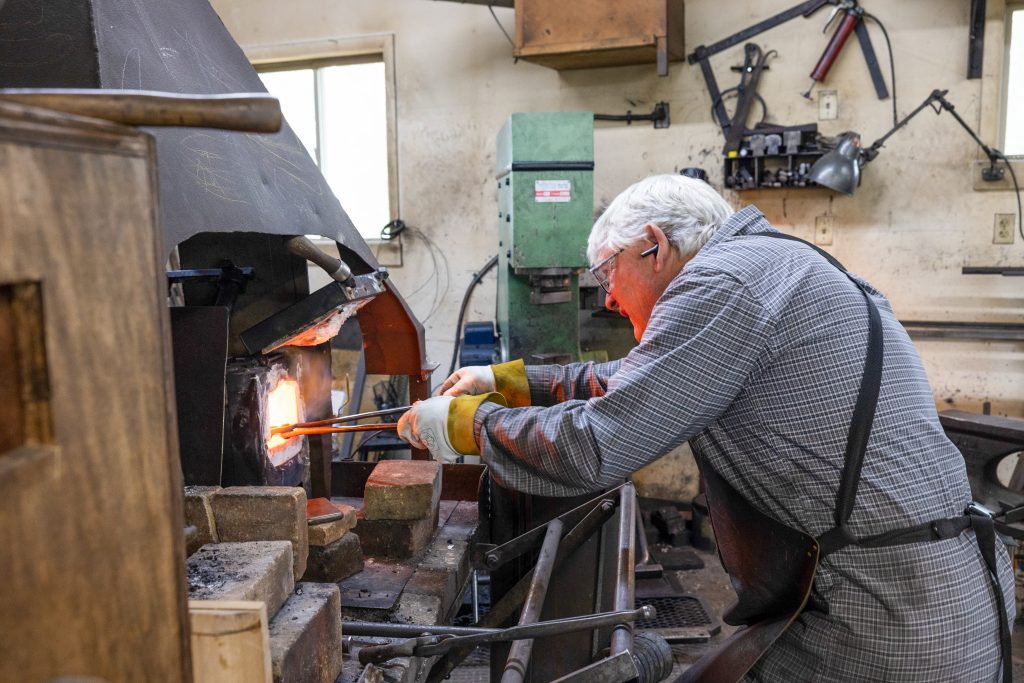It is often easy to forget the work and vision of those who came before us. As we walk through downtown McCall with an ice cream cone in hand, we rarely remember that this vibrant town started as a 160 acre homestead. Posting a picture to Instagram of your hike to Louis Lake doesn’t automatically trigger memories of dog sled teams battling the elements to deliver a few letters to the backcountry. New earrings from McCall Jewelry Company don’t conjure images of rugged miners panning for gold in Kennally Creek.
However distant the past may seem, this history played a vital role in sculpting the culture and amenities we know and enjoy today. We invite you to take a stroll down memory lane as we bridge the divide between the past and present. You may be surprised at the secrets that lay just around the corner!
Smith’s Ferry
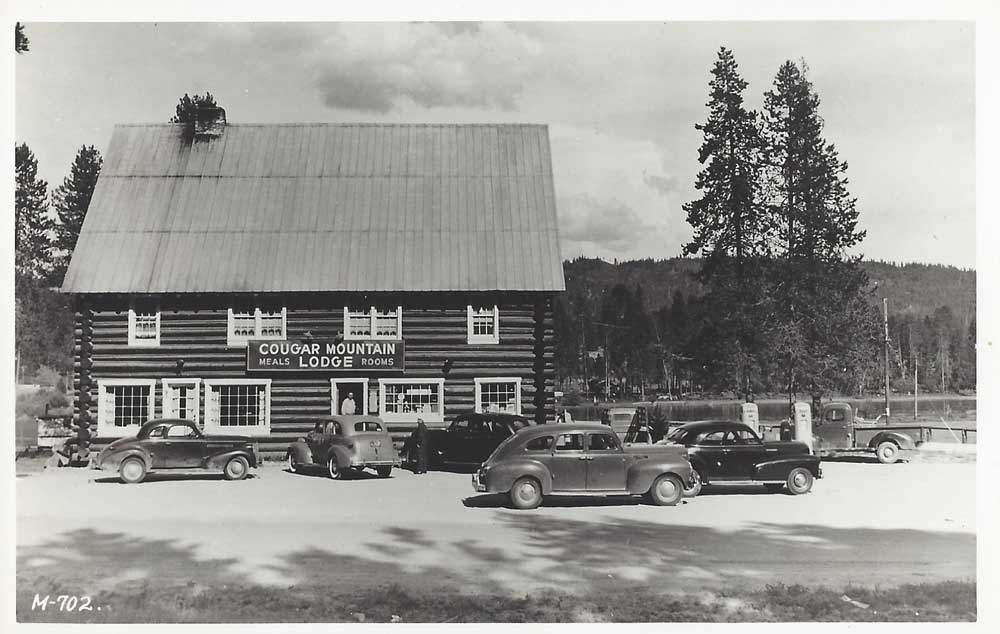
Cougar Mountain Lodge: Home of the Cougar Mountain Lodge, Smith’s Ferry was the location of the very first ferry across the Payette River. In 1919 the first bridge was completed and became a vital crossing station and popular stopping place. The Lodge was constructed in 1938 and opened for business in 1941. Today, you can stay overnight in the unique log rooms, grab a quick bite at the restaurant or find those last minute items at the mini mart as you head out to recreate! Stop by this summer as the Cougar Mountain Lodge celebrates its 75th anniversary.
For more information:
- Find Cougar Mountain Lodge on Facebook & TripAdvisor
Cascade, Idaho
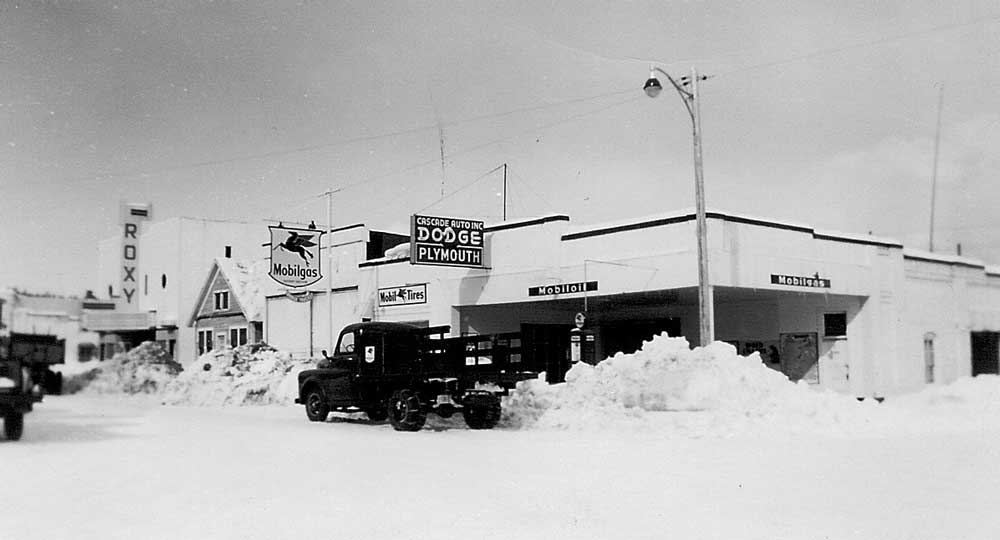
Kelly’s Whitewater Park: This premier waterpark is situated on a site that exemplifies the history of Valley County. Starting in the 1920s, the sawmill in Cascade was a vital part of the area economy, responsible not only for helping build the robust timber industry, but also acting as a catalyst to build the railroad to connect Valley County with the Boise area. The Cascade sawmill changed hands multiple times, eventually ending up as part of the Boise Cascade Lumber Company. The mill was closed in 2001 leaving a large area of riverfront vacant. Enter Kelly’s Whitewater Park. With a vision to revitalize Cascade as a tourist destination, community leaders and benefactors Mark and Kristina Pickard turned the idea of Kelly’s into reality. Today, Kelly’s is celebrated as one of the top whitewater parks in the country. Dive into the fun in your kayak or on your stand-up paddle board. You can also take a leisurely stroll along “The Strand,” a 2.5 mile river trail, or cast a line from the beautifully landscaped riverbank or from Rock Island.
For more information:
Roxy Theater: Opening its doors on July 14, 1939, the Roxy was the most advanced theatre in the Pacific Northwest at the time. The original building was constructed for $25,000 and blended old Hollywood glamour with small town charm; a mix that is still present today. A recent renovation has given new life to this stunning movie theater. With state-of-the art digital projection, Dolby 7.1 surround sound and interior renovations including brand new seating and an art deco box office and concession stand, the Roxy is still as elegant as ever. Catch the next big blockbuster hit at this landmark movie theater. Tickets are $8 for adults and $6 for children. We also recommend the “date night” concession package…2 large drinks and a large popcorn for $7!
For more information:
Roseberry, Idaho
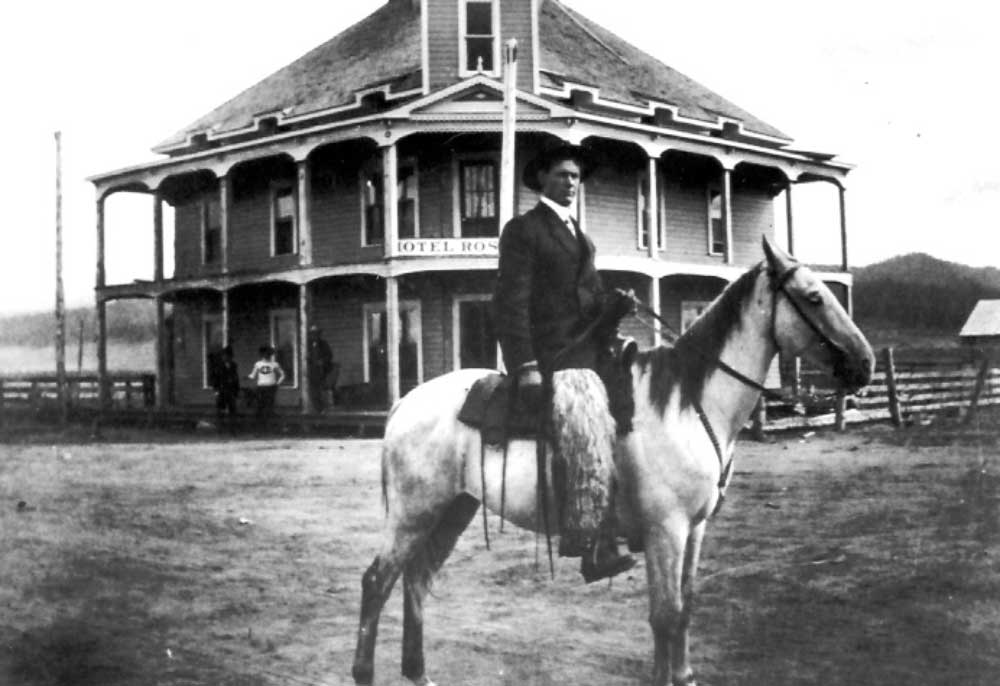
Roseberry: In 1888 Howell T. Boydstun and his family came to the Idaho Territory from Missouri to eventually settle in the township of Roseberry, Idaho, 1 mile east of Donnelly on Roseberry Road. They traveled by railroad car with everything from stock animals to farm implements. By 1905, Roseberry was a growing town complete with a hotel, two black smiths, two stores, a restaurant, butcher shop and logging mill. While the town of Roseberry faded into a semi-ghost town by 1915, many of the original structures from the surrounding townsite are still standing. Tour buildings including the Mahala Blacksmith Shop (built in 1904), the Korvola Cabin (built in 1898) and the Carriage House (built in 1910) as part of the Roseberry museum complex. Roseberry is also home to the Summer Music Festival each July. Bring a picnic and your lawn chairs and enjoy three nights of world class music!
For more information:
Donnelly, Idaho
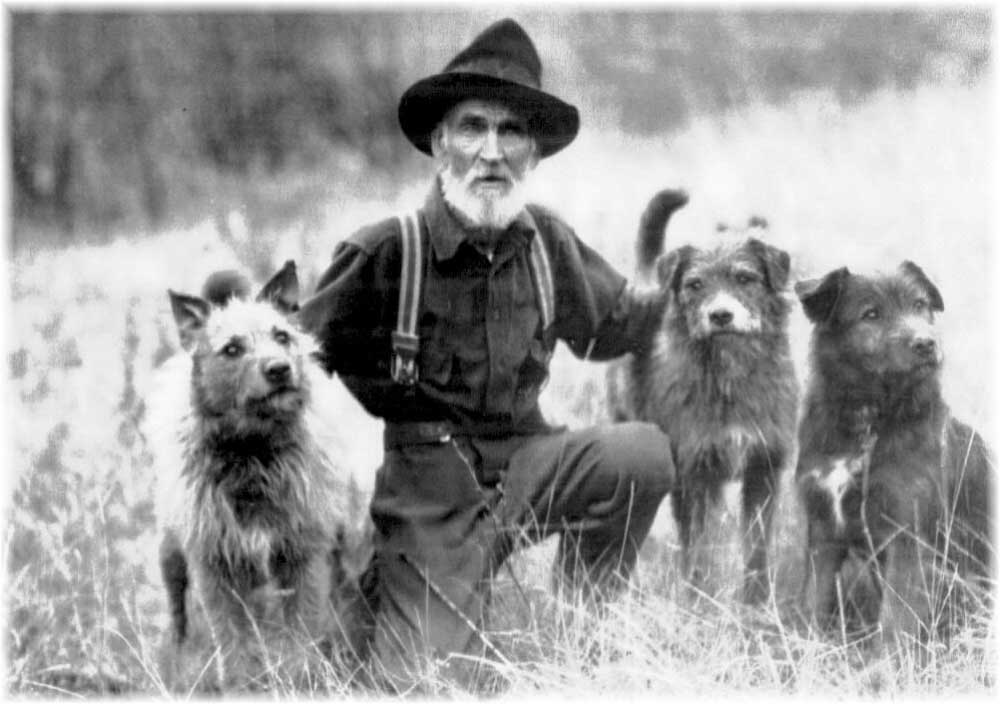
Silver Tip Hat Company: The Silver Tip Hat Company is located in the First State Bank building. Originally built in 1907 in Roseberry, the building was moved to Donnelly in 1917 when the railroad was built. Here, Randy Priest creates on-of-a-kind hats made from a 50/50 blend of beaver felt and rabbit fur. Each hat is handcrafted using traditional hat blocks in different heights and sizes. The felt is steamed and the hat block set in place. After the size has been set, the hat is transferred to a crown iron to smooth out the contours of the crown and smooth the felt. Priest still uses a crown iron made in 1899. To add creases and contours, the hat is again steamed and hand-molded into shape. Stop in to see new takes on traditional hats including the buckaroo and western fedora or design a custom creation!
For more information:
- Please find the Silver Tip Hat Company on Facebook.
Cougar Dave’s: Dave Lewis was a hunter and trapper who homesteaded on the Middle Fork of the Salmon River. Originally from New Orleans, Lewis joined the Union Army and fought at Vicksburg with Wild Bill Hickock. After the war ended, Lewis narrowly escaped Little Big Horn in 1876 where he was a scout. From Montana, he moved to Oregon then Idaho and worked as a civilian packer during the Nez Perce War. Retiring from military life, Cougar Dave (as he would become known) hunted cougars with his contingent of dogs as a means of income. In 1936, Lewis contracted pneumonia and was transported by ambulance from Yellow Pine to Cascade. Enroute, the ambulance was hit head on by a truck. Lewis died the following day. While Cougar Dave may be gone, his legacy lives on at Cougar Dave’s Restaurant in Donnelly. Try Bison Burger, locally sourced from nearby Northwood Buffalo Ranch, or the always delicious Double R Ranch Prime Rib.
For more information:
- Please find Cougar Dave’s on Facebook and Trip Advisor.
McCall, Idaho
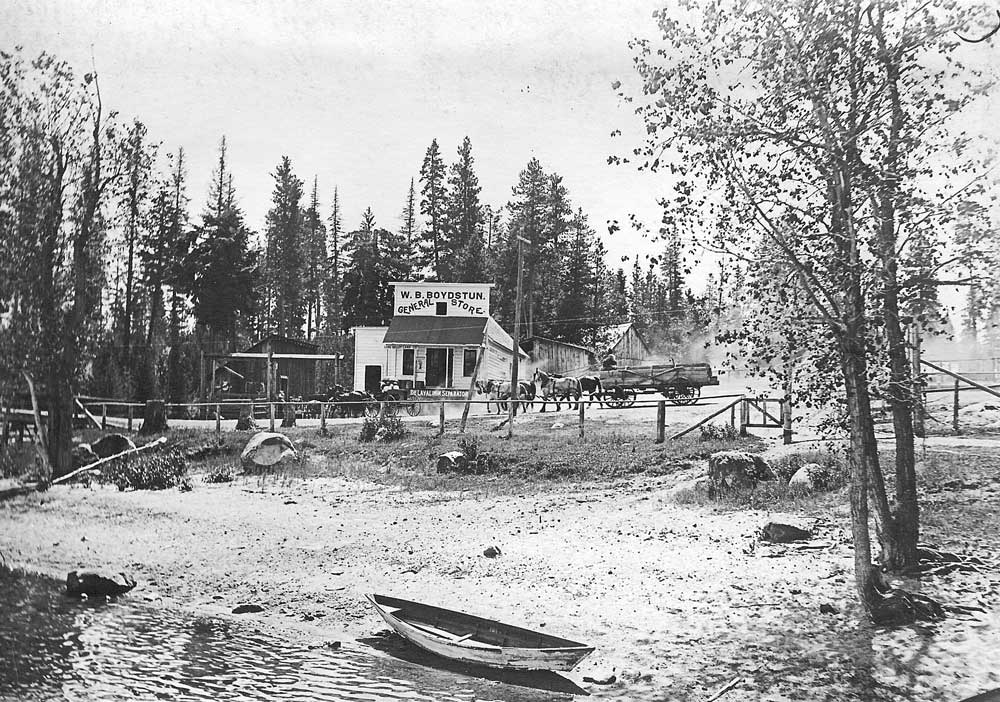
Lardo: It may be surprising that the site of the delicious hamburger you are enjoying for lunch is actually the site of the original settlement of McCall known as Lardo. In 1886, Lardo sprang up as a small gold mining town that boasted two blacksmiths, a stable, a meat market, a restaurant, a harness maker, two hotels and a post office and general store. In addition, the first newspaper in the area, the “Long Valley Advocate,” was located in Lardo. Daily stage service ran between Lardo and Meadows for a fare of $1.75. It is said Lardo got its name when a wagon load of flour and lard overturned and mixed together to create a “lard dough.” While there is no evidence to prove the truth of this event, it does make a great story! Today, the Lardo Grill and Saloon is the perfect stop after a day on the lake. We love the buffalo wings or loaded Lardo fries to start. Choose from a huge menu of burgers and sandwiches then make sure to save room for the hot buttered fudge cake with vanilla ice cream.
For more information:
Train Depot: The first train arrived in McCall on June 20, 1914. Regular routes between McCall and the Treasure Valley ran Monday, Wednesday and Friday carrying passengers, freight and mail and essentially changing the landscape of McCall. With the ease of train travel, many people from the valley started to make vacation trips to the area. The rail line through the Payette River canyon was well-known as one of the most scenic routes in the United States. The main train depot is still standing today and the last visible evidence of the train service that ran until the 1980s. The historic McCall Depot was moved 100 yards north of Highway 55 and is now home to the Salmon River Brewery and Bistro 45. Hit happy hour at SRB and enjoy a pint of “Buzz Buzz Porter” or the popular “Shiver IPA.” If wine is on your mind, head down Bistro 45 in the courtyard below and mingle with fellow wine-lovers.
For more information:
Payette Lake: Hollywood comes to McCall! In the summer of 1939, Spencer Tracy, Robert Young, Walter Brennan and the Metro Golden Mayer crew descended on McCall to film “Northwest Passage” along the shores of Payette Lake. Sylvan Beach Resort, near present day “Charlie’s Garden,” served as headquarters for the film crew while various beaches along the lake and Payette River were transformed into elaborate movie sets. Over 150 movie extras from the local area were cast in the film and paid $5 per day with an extra $5 per day for anyone who had a beard. While little evidence of the movie sets can be seen today, the scenic shores of Payette Lake remain. Spend the day at one of the many public beaches building sand castles, playing Frisbee or enjoying a picnic. We love North Beach off Warren Wagon Road, Ponderosa State Park or Legacy Park right in the heart of downtown McCall.
For more information:
New Meadows, Idaho
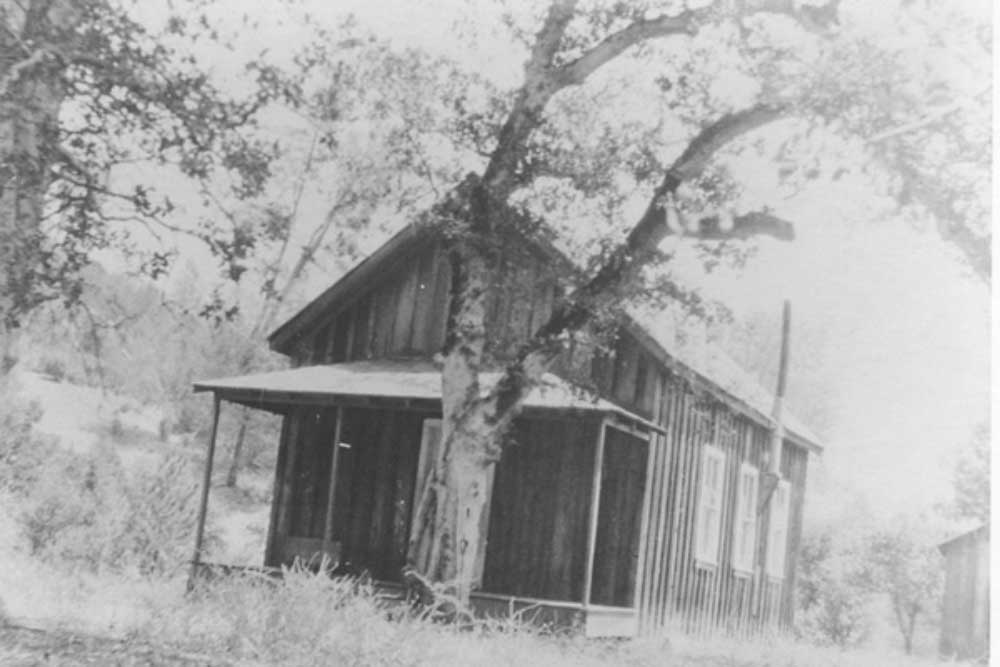
Packer John’s Cabin: In 1862 John Welch set out to find a shortcut route between Lewiston and Idaho City to reduce transportation costs. He made it to Little Salmon Meadows as the snow set in. Stranded for the winter, he and his party built a cabin for the winter that would become the mid-point meeting place for the territorial conventions of 1863 and 1864. By the late 1800s, the site had fallen into disrepair, but continued to be a popular picnic site. The cabin was first restored in 1909 by John Hailey and the Historical Society where it stood until 1920 when a fire swept through the site. It was again rebuilt and Packer John’s Cabin became a state park on March 6, 1951 and is part of the Ponderosa State Park system. This historic area now offers camping and biking and hiking trails.
Warren, Idaho
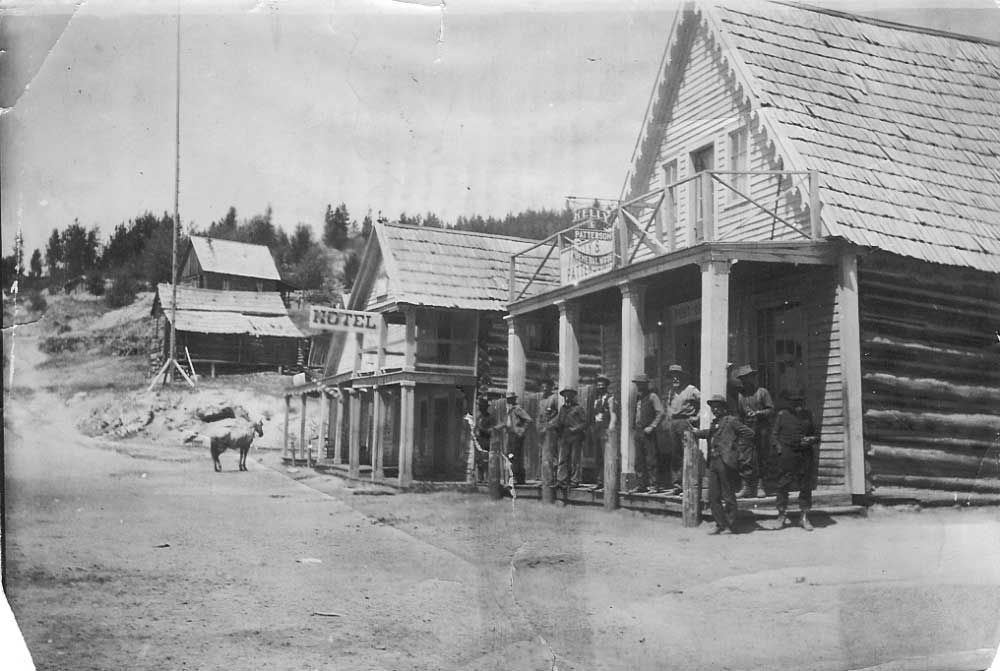
Polly Bemis: Perhaps one of the most famous names to come from Warren, Idaho is Lalu Nathoy, who would become known as Polly Bemis. She arrived in Warren, a thriving gold mining town at the time, after being sold at the age of 19 to Hong King. There she worked in King’s saloon and dance hall and met her future husband Charlie Bemis. Charlie would later win Polly in a poker game. A consummate gambler, Charlie Bemis was shot in the left cheek during another poker game. When the doctor from Grangeville couldn’t do anything for Charlie, Polly took charge and is said to have cleaned the wound with her crochet hook. After their marriage in 1894, Polly and Charlie moved from Warren to the Salmon River (a location now known as the Polly Bemis Ranch). Today, Warren is listed as a ghost town although it does have a year-round population. Pick up a walking tour from the Payette National Forest office in McCall and step back in time. The tour will lead you down Warren’s main street, to the Guard Station and school, through the business district, past the Hotel and Dance Hall and more. After the tour, grab lunch at the Baum Shelter (open Thursday – Saturday from noon to early evening).
Dredge: Warren was one of the first mining settlements in the territory. The first miners came in the 1860s to pan for gold. Underground mines and dredge mining came later, but are the most visible remnants of the booming industry that resided in the area. Today, you can view the steam powered dredge last used in the area in the 1930s. The dredge is partially sunk along Warren Creek, but the old bucket line and upper story can still be seen. The dredge makes for a quick side trip from Warren. Access by car, ATV or UTV.
Want to learn more? Head to the Central Idaho Historical Museum in McCall!
